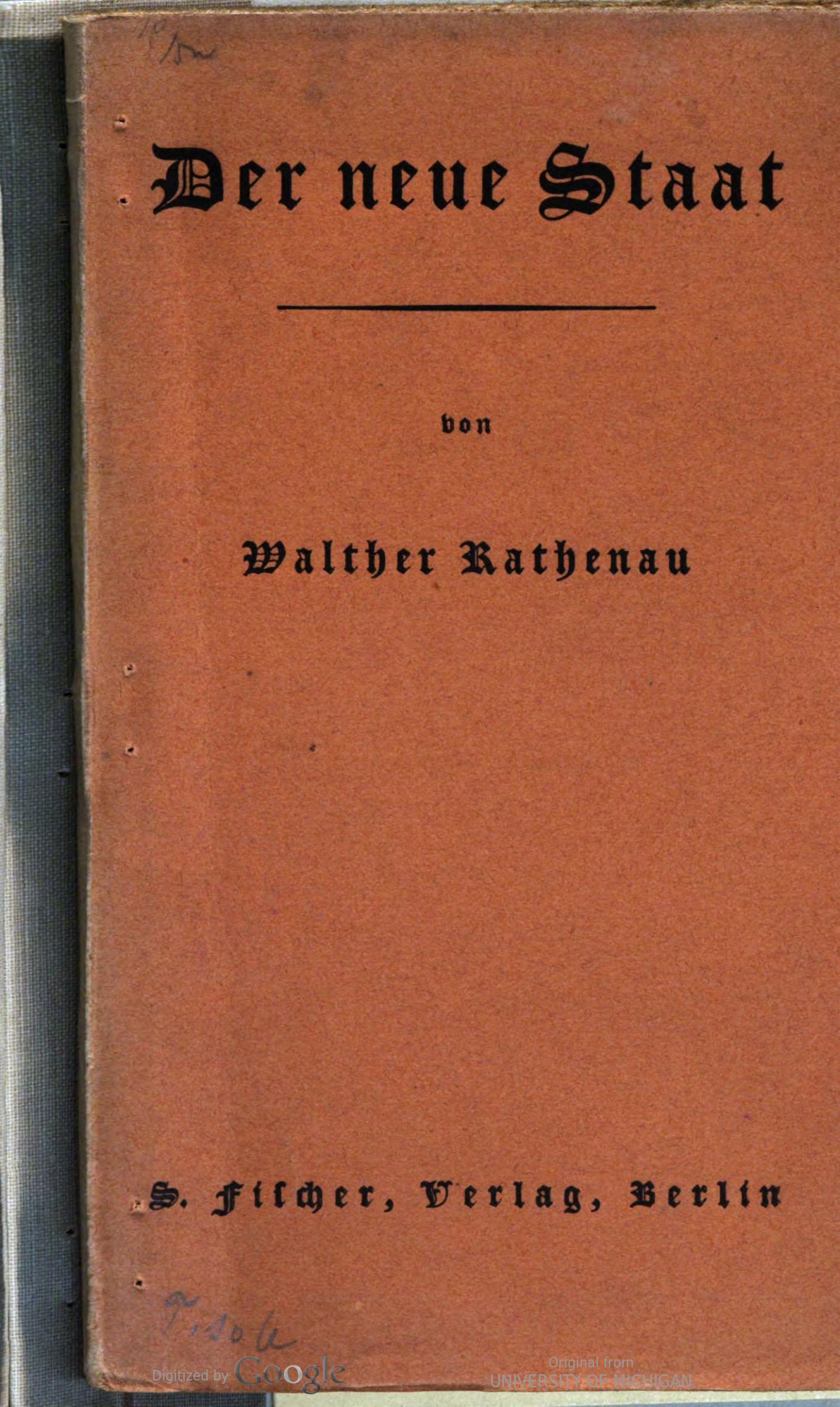Walther Rathenau's work and life (1867-1922) became one of the best-known exemplars of the history of emancipated Jews in Imperial Germany. His father, Emil Rathenau, had founded the centralized conglomerate Allgemeine Elektricitäts-Gesellschaft (AEG), the German General Electric Company. Walther dutifully studied engineering, and learned the ropes of big business in various subsidiaries of his father's corporation. As an adult, he continued to travel throughout Europe, South America, and Africa, and eventually succeeded his father at the helm of the German General Electric Company. He also served on numerous boards, and became one of Europe's major economic leaders. Rathenau attained the highest government office that was ever reached by a Jew in Germany by becoming Germany's first, and so far only, Jewish foreign minister. He was assassinated on the 24th June 1922, less than six months after his appointment, shot and murdered by two young right-wing former German officers.
Rathenau belonged to a small group of prominent men who raised theoretical questions about the roles of technology, engineering, industrialism in their age, often called the "Second" Industrial Revolution. He lived in close proximity not only to technology, but to the technologies of the Second Industrial Revolution
Rathenau was also active in cultural, artistic, and social elite circles, and he had his own ambitions as a writer. He produced smaller articles as well as monographs, and his ambition was to talk about nothing less than the question of modernity and its origins. One larger work of his is entitled The New State.It dates from March 1919, just after the end of the Great War. He says early on "The global power of fifty years of the second German empire is gone. What pretended to be the German essence . . . has destroyed itself." Rathenau continues by claiming that the revolution will fulfill itself not overnight, and instead through a series of creations of the people. Concluding this passages, he perhaps unintentionally reproduces one of the best-know stereotypes of Germans, back then and nowadays: "In spirit and our form of life, we are as mechanized as all the other peoples. Also, we have not invented mechanization, but have acquired it with our enormous thoroughness, and then brought it to perfection" (pages 9-16).
